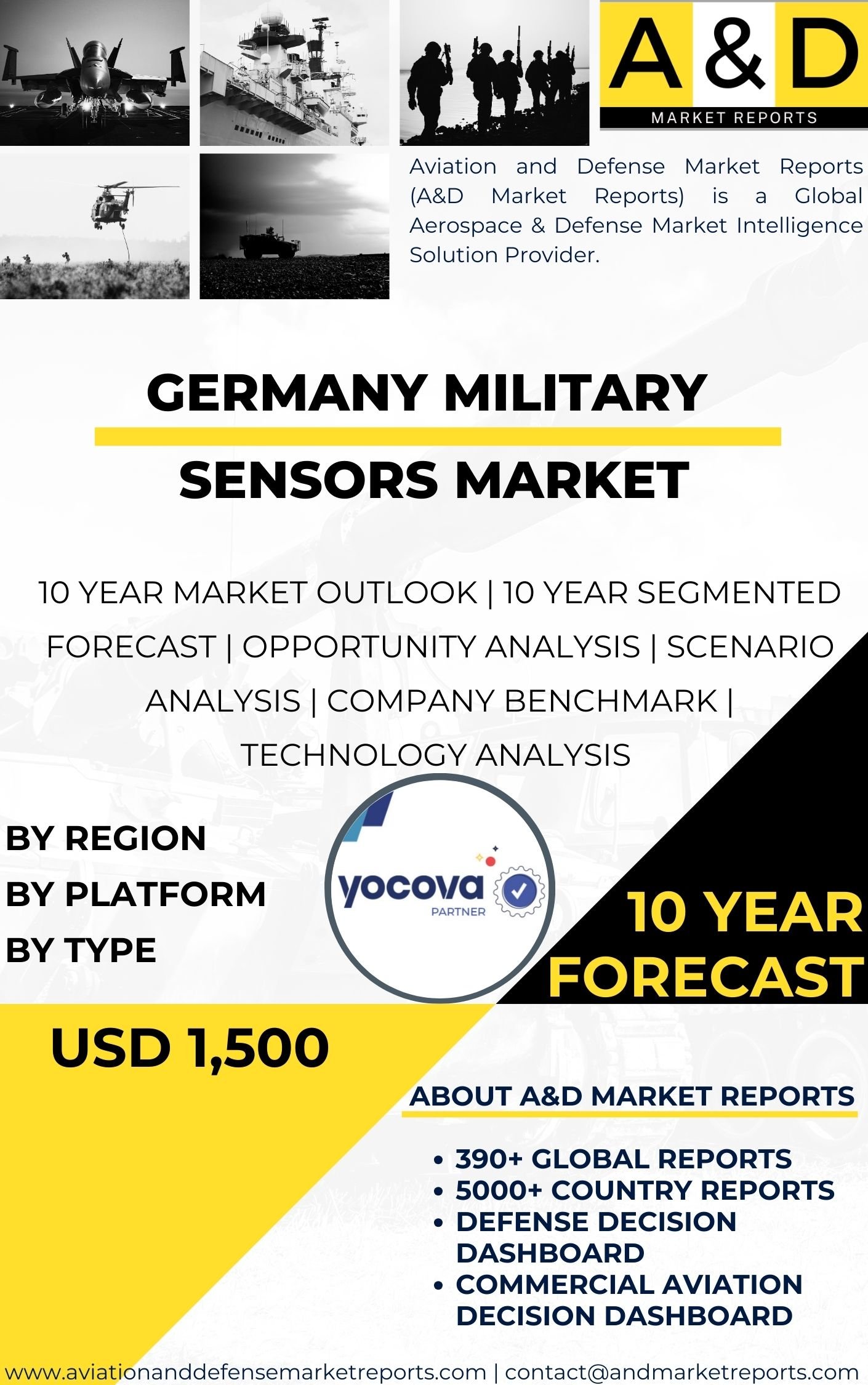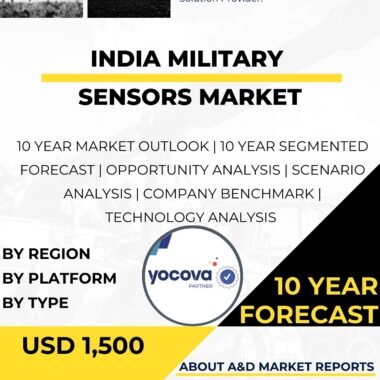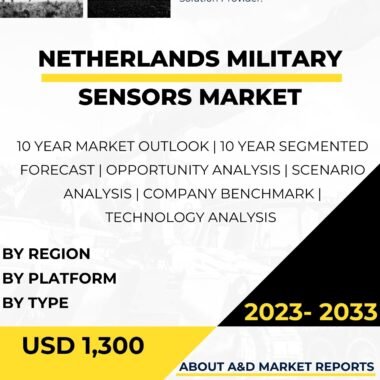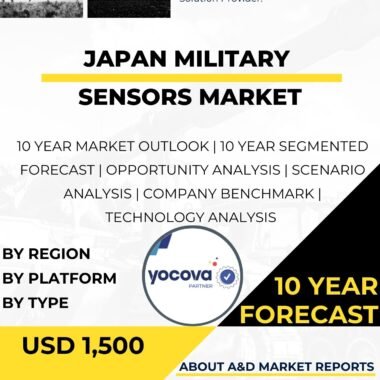Description
Germany military sensors market has been a crucial and dynamic segment within the country’s defense industry. Military sensors are advanced electronic devices designed to detect, collect, and process data from various sources, enabling the German Armed Forces to enhance their situational awareness, reconnaissance capabilities, and overall operational effectiveness. These sensors are instrumental in gathering information about the battlespace, monitoring threats, and supporting decision-making processes during military operations.
The Germany military sensors market encompasses a wide range of sensor technologies, including radar, infrared, acoustic, electro-optical, and chemical sensors, among others. These sensors are employed across different branches of the military, including the Army, Navy, Air Force, and Joint Special Operations Command, to address various operational requirements and enhance the capabilities of military platforms and systems.
One of the primary drivers of the Germany military sensors market is the country’s commitment to modernizing its armed forces and maintaining a technologically advanced defense posture. As part of its defense reform efforts, Germany has been investing in acquiring and developing state-of-the-art military sensors to keep pace with evolving threats and challenges. This investment includes the procurement of new sensor systems, as well as the enhancement of existing sensors through upgrades and technology insertion.
Furthermore, Germany’s participation in various international missions and peacekeeping operations has underscored the importance of advanced military sensors. Military personnel deployed in diverse and often hostile environments require reliable and sophisticated sensor systems to detect and monitor threats, assess potential risks, and gather intelligence on adversaries. Therefore, the demand for versatile and effective military sensors is significant in supporting German forces in their international engagements.
The Germany military sensors market is also influenced by technological advancements in sensor technologies. Advancements in miniaturization, signal processing, and sensor fusion have enabled the development of more compact, lightweight, and multi-functional sensors. These technological improvements allow for the integration of multiple sensor capabilities into a single platform, enhancing operational flexibility and reducing the logistical burden on military forces.
Moreover, the integration of sensor technologies with network-centric warfare concepts has further enhanced the capabilities of military sensors. Network-centric warfare relies on the rapid exchange of sensor data and information across various platforms and units, allowing for a comprehensive and shared understanding of the battlespace. Advanced military sensors are critical components of this networked approach, providing real-time data to decision-makers and supporting coordinated military operations.
In recent years, Germany has also shown a growing interest in exploring and adopting cutting-edge sensor technologies, such as artificial intelligence (AI) and machine learning. AI-enabled sensors can analyze large volumes of data, identify patterns, and autonomously make decisions based on predefined algorithms. This capability has the potential to revolutionize military sensors, enabling more proactive and adaptive responses to dynamic and complex threats.
The export potential of German military sensors is another important aspect of the market. Germany’s reputation for producing high-quality defense equipment and its strong technological base make it an attractive supplier for other countries seeking advanced military sensor solutions. However, export decisions are subject to international regulations and political considerations, especially when it comes to sensitive military technologies.
Challenges faced by the Germany military sensors market include the need to balance investments in sensor technologies with other defense priorities, given budget constraints. The modernization of military sensors requires significant financial resources, and decision-makers must carefully prioritize investments to ensure the optimal allocation of funds across various defense requirements.
Additionally, the Germany military sensors market must address challenges related to sensor integration, interoperability, and standardization. As the number of sensor systems and platforms in service increases, ensuring seamless communication and data exchange among different sensors and platforms becomes essential to maximize their operational effectiveness.
In conclusion, the Germany military sensors market is a vital and dynamic segment within the country’s defense industry. Advanced military sensors play a crucial role in enhancing the German Armed Forces’ situational awareness, reconnaissance capabilities, and operational effectiveness. The market is driven by Germany’s defense modernization efforts, participation in international missions, technological advancements, and the adoption of network-centric warfare concepts. As Germany continues to invest in acquiring and developing cutting-edge military sensors, the market is expected to play an increasingly pivotal role in shaping the country’s defense capabilities and supporting its international defense cooperation efforts.




